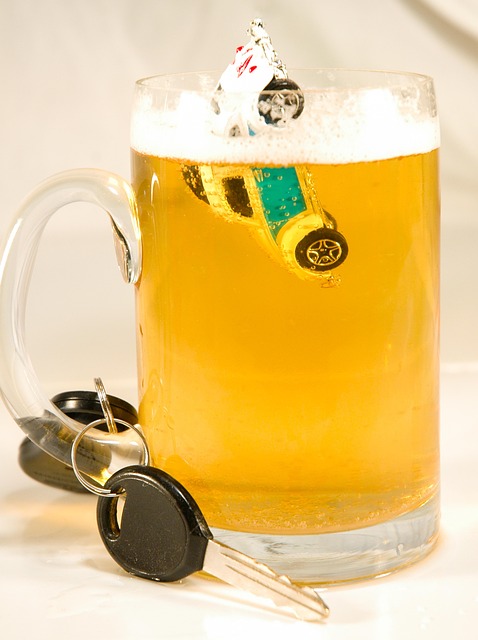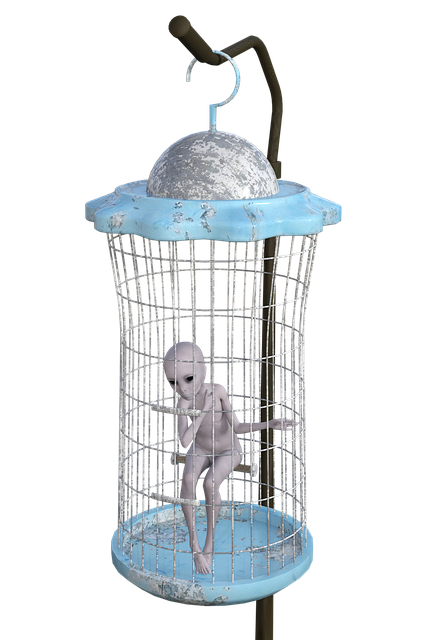Drug interactions pose significant risks for individuals recovering from substance abuse, impacting treatment effectiveness and potentially leading to adverse events, especially with driving under the influence (DUI) laws. Support groups are vital resources, offering education on drug interactions and legal implications, fostering open dialogue, and providing emotional support. These groups empower members to make informed decisions, navigate legal challenges, and achieve long-term recovery, breaking down stigma and promoting healthier lives.
In the journey towards recovery, support groups play an indispensable role. This article explores a multifaceted approach to understanding and overcoming substance abuse, focusing on three key aspects. We delve into “Understanding Drug Interactions: The Hidden Dangers of Combinations,” examining how drug interactions can exacerbate legal issues, particularly under DUI laws. Additionally, we highlight the power of “Support Groups as a Cornerstone for Recovery” and offer practical strategies for navigating these groups successfully. Breaking down stigma, we empower individuals through shared experiences.
- Understanding Drug Interactions: The Hidden Dangers of Combinations
- The Impact of Substance Use on Legal Consequences: A Focus on DUI Laws
- Support Groups as a Cornerstone for Recovery: Building Community and Trust
- Navigating the Road to Recovery: Strategies for Success Within Support Groups
- Breaking Down Stigma: Empowering Individuals Through Shared Experience
Understanding Drug Interactions: The Hidden Dangers of Combinations

Drug interactions can have severe consequences, especially for those recovering from substance abuse. When different medications are combined, they may affect each other’s effectiveness or cause unexpected side effects. This is particularly concerning for individuals struggling with addiction, as they often have complex prescription regimens to manage withdrawal symptoms and underlying health conditions. For instance, certain painkillers and benzodiazepines, commonly prescribed to treat anxiety, can create a dangerous combination leading to respiratory depression when taken together.
Understanding drug interactions is crucial in the context of DUI law, as it highlights the importance of adhering to medical advice. Recovery support groups often emphasize the need for open communication with healthcare providers to ensure safe medication practices. By educating themselves and their peers about potential interactions, individuals in recovery can protect themselves from accidental overdose or other adverse events, fostering a safer path towards long-term sobriety.
The Impact of Substance Use on Legal Consequences: A Focus on DUI Laws

Substance use, especially when it involves drugs or alcohol, can have significant legal repercussions, particularly in the context of driving under the influence (DUI). DUI laws are strictly enforced worldwide to ensure road safety and prevent accidents caused by impaired drivers. When an individual’s judgment is clouded by drug interaction, their ability to make safe decisions while behind the wheel becomes compromised. This can lead to severe legal consequences, including hefty fines, license suspension or revocation, and even imprisonment.
The interplay between drugs and driving is a complex issue. Drug interactions can affect coordination, reaction time, and decision-making abilities, all of which are critical for safe driving. DUI laws aim to deter individuals from getting behind the wheel while under the influence by imposing strict penalties. These laws not only protect public safety but also serve as a powerful deterrent, encouraging responsible behavior and awareness about the dangers of drug interaction while driving.
Support Groups as a Cornerstone for Recovery: Building Community and Trust

Support groups play a pivotal role in the recovery journey, especially for individuals grappling with substance abuse or addiction. These gatherings provide a safe and non-judgmental space where people can come together to share their experiences, struggles, and victories. The power of community is undeniable; when individuals connect with others facing similar challenges, they foster a sense of belonging and understanding. This interconnectedness forms the cornerstone of recovery, as it helps break down isolation and promotes healing.
In the context of drug interactions and DUI law, support groups offer more than just emotional support. They serve as a platform for education and awareness, where members can learn about potential drug interactions that may impact their overall health and legal outcomes. By sharing personal stories and insights, group members can gain valuable knowledge about managing addiction while navigating complex legal systems. This mutual support system strengthens the foundation of recovery, ensuring individuals are equipped with the necessary tools to make informed decisions and build a brighter future.
Navigating the Road to Recovery: Strategies for Success Within Support Groups

Navigating the road to recovery from substance abuse or addiction is a challenging journey, but support groups offer a powerful tool for success. These groups provide a safe and non-judgmental space where individuals can share their experiences, gain insights, and receive emotional support. Within these intimate settings, members learn from one another’s stories, offering a unique perspective that fosters understanding and healing.
Within support groups, strategies for success include active participation through honest sharing, building meaningful connections with peers, and adopting coping mechanisms shared by group members. Additionally, addressing potential drug interactions and understanding the implications of DUI laws can be integral to long-term recovery. Support groups often provide resources and education on these topics, empowering individuals to make informed decisions and stay on the path to a sober and fulfilling life.
Breaking Down Stigma: Empowering Individuals Through Shared Experience

In many cases, individuals struggling with substance abuse or addiction often face the additional challenge of societal stigma. This can create a barrier to seeking help and recovery. Support groups, however, serve as powerful tools in breaking down these barriers by fostering an environment of shared experience and understanding. When people gather together who have faced similar challenges, such as Drug Interaction and DUI Law issues, it creates a sense of camaraderie and empowerment. Knowing that they are not alone can be incredibly therapeutic and encourage open dialogue about the struggles and triumphs of recovery.
These support groups provide a safe space where individuals can share their stories without fear of judgment. It normalizes conversations around addiction, reduces shame, and promotes peer-to-peer learning. By witnessing others’ journeys, members gain valuable insights into coping mechanisms, strategies for managing cravings, and ways to navigate legal implications like DUI charges. Such shared experiences can lead to profound personal growth and a renewed sense of hope, empowering individuals to take control of their lives and make positive changes.
Support groups play a pivotal role in the recovery process, offering individuals a safe space to share experiences, build trust, and navigate challenges. By fostering community, these groups break down stigma associated with substance abuse, especially in the context of legal consequences like DUI laws. Understanding drug interactions and their hidden dangers is crucial, but so is recognizing the power of shared recovery journeys. Through support networks, individuals gain strategies for success, empowering them to make positive changes and build a brighter future free from addiction’s grasp.






